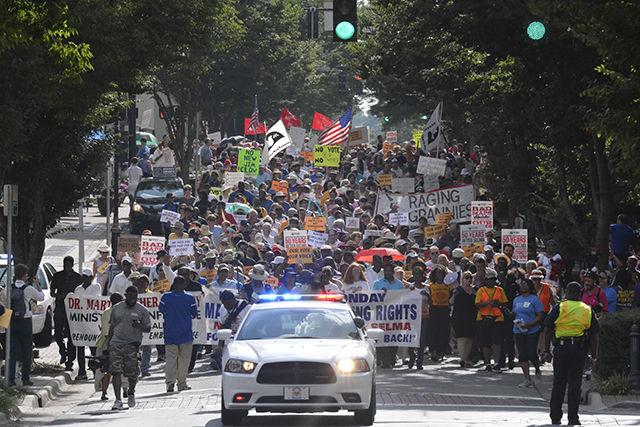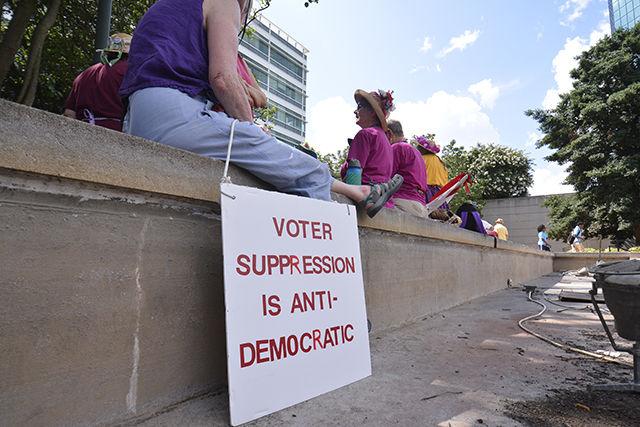A federal trial dealing with North Carolina’s voting laws began July 13 in Winston-Salem contesting whether current laws restrict minorities from voting.
The North Carolina NAACP along with various voting rights groups and the Department of Justice filed a lawsuit saying that current legislation is unlawful, while the state believes they are necessary to prevent voter fraud.
The Republican legislature created the current voter registration laws in 2013 which
include:
scaling back the number of days for early voting
eliminating the process of registering to vote and voting on the same day
not allowing voters to cast a ballot outside of their precinct
doing away with preregistration programs for 16 and 17 year olds.
“Fighting voter suppression acts is vital to inclusion in politics,” said Chad Stephens, a member of the NAACP. “Otherwise, we will have a less and less open democratic society, and the voices of only those who can afford to vote in the narrow framing will be heard.”
Changes in the law followed only weeks after the Supreme Court ruled it unlawful for states to seek federal approval before changing voting laws in states with history of racial discrimination. Previously, states like South Carolina, Alabama and Mississippi had to go to the Supreme Court in order to alter voting laws.
“Considering that state-sanctioned discrimination is no longer the problem it was in the 1960s, it is not necessary to monitor all voting laws of southern states,” said Sam Potter, the president of College Republicans. “Individual instances of discrimination, should they occur, can be addressed individually. North Carolina should not require permission from the Supreme Court to change their voting laws.”
In an opening statement in the courtroom, Thomas Farr, an attorney defending Gov. Pat McCrory and the state said none of the changes are any more discriminatory towards one race than the other.
Potter agrees and said that there is no issue with a shortened early voting period.
“The numbers of hours polls are open each day was increased, and … some states, such as New York, to pick just one, don’t have early voting at all,” he said.
The plaintiff has said the laws made in 2013 to cut back on early voting, eliminate same-day registration, only accept ballots inside the voter’s precinct and annul preregistration for soon-to-be voters were deliberately made to exclude black, Hispanic and young voters, who tend to vote Democrat.
President of College Democrats Jacqueline Lee said she believes removing NC State as a site for early voting last year hurt Republicans just as much as it did Democrats.
“Our campus is pretty split,” she said. “Sure, there are raging liberals and major conservatives, but if you look around, about half of students and faculty are split between party lines.”
The first day of the trial was followed by a march and rally, drawing thousands of people to downtown Winston-Salem. President of the NAACP Rev. William Barber spoke at the rally and compared Monday’s rally to the events in Selma, Alabama nearly 50 years ago.
“This is our Selma,” Barber said emphatically to the crowd.
He later continued and drew parallels to other racial events in history, including the recent Confederate flag removal in South Carolina.
“The laws we have in place might as well have been posted on Confederate flag stationary,” Barber said, calling out the discriminatory tone of the laws.
Environmentalists, veterans, Hispanics, seniors, teens and other groups made up the thousands in attendance at the rally.
Bonnie Parsons, one of the attendees, said she also marched in Selma in 1965.
“There was a lot more fear back then,” she said. “[Monday], no one [was] pointing guns at me. People were lined up along the side of the road with them, so it was a very different experience. I feel sad that in my state, rights are being eliminated and taken away from people. It’s a step backward, and I’m appalled.”
The trial is expected to last four weeks and will not be subject to a jury.









